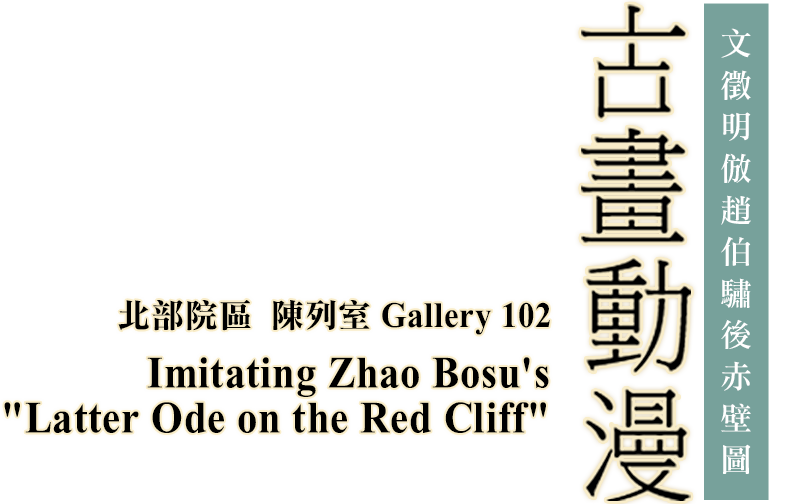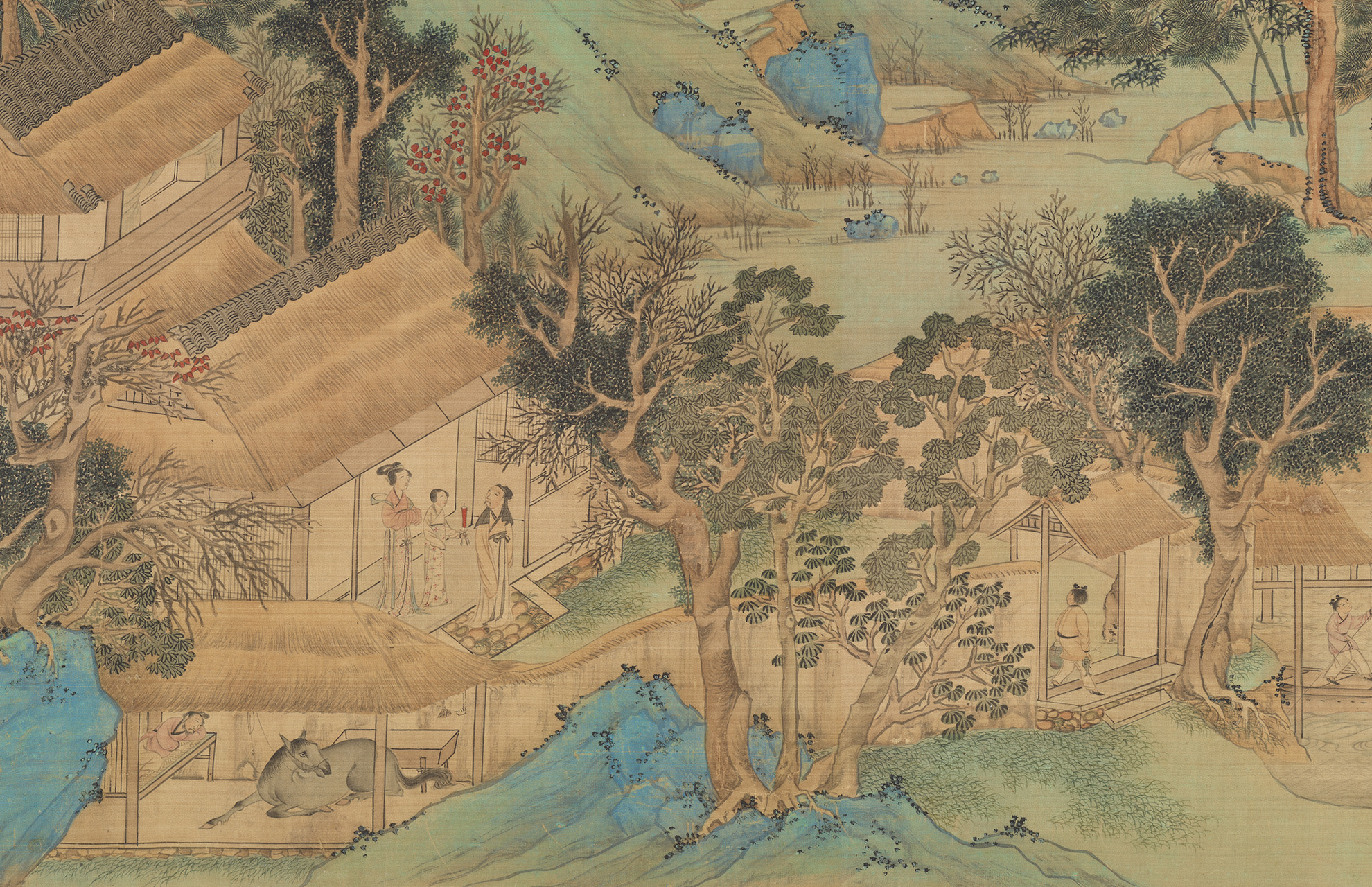Since 2011, the National Palace Museum initiated a series of high-resolution long scroll painting animations. Using the latest technology, several high-resolution 1080 HD projectors seamlessly unfold sceneries from classical long scroll paintings on the wall. The painting animation series reproduces nine popular paintings and calligraphy, including Along the River During Qingming (Qing court artists), Spring Dawn in the Han Palace (Qiu Ying), Imitating Zhao Bosu's Latter Ode on the Red Cliff (Wen Zhengming), Syzygy of the Sun, Moon, and Five Planets (Xu Yang), Departure Herald (Anonymous), Return Clearing (Anonymous) and Activities of the Twelve Lunar Months (Qing court artists), One Hundred Horses (Giuseppe Castligione), The Cold Food Observance (Su Shi), Poem in Seven-character Verse (Huang Tingjian). Inspired by historical material related to the artworks, the animations faithfully present the true spirit of the original paintings and their most attractive parts. A fascinating feature of the long scroll painting is its ability to simultaneously manifest chronological continuity and segmentation. As a result of the unique painting scale and traditional right to left reading direction, painting compositions unfurl accordingly and emphasize horizontal relationships. Oftentimes, scenes occurring at different points in time were depicted on a single scroll.
Introduction
Film Summary
Imitating Zhao Bosu's
"Latter Ode on the Red Cliff"
Wen Zhengming (1470-1559), Ming dynasty
Imitating Zhao Bosu's "Latter Ode on the Red Cliff"
- Hand scroll, ink and color on silk, 31.5 x 541.6 cm
This hand scroll, based on the text of Su Shi's (1037-1101) "Latter Ode on the Red Cliff," depicts Su and his two friends traveling back to the Red Cliff and ascending the cliffs with a great sense of lyricism. The colors are bright and clear, the lines for the figures simple and plain. Landscape elements are densely piled with coloring close to the blue-and-green tradition of literati painting practiced by Zhao Mengfu (1254-1322). At the end of the scroll is an inscription by Wen Jia (1501-1583), a son of Wen Zhengming, describing the story behind this painting. It mentions how Wen Zhengming made this copy of Zhao Bosu's (ca. 1123-1182) "Latter Ode on the Red Cliff" to prevent the owner, a Suzhou scholar and friend of his, from running afoul of a local official who wished to present the original to Yan Shifan (?-1565), son of the powerful Grand Secretary Yan Song (1480-1567). This copy also demonstrates Wen Zhengming's great skill in imitating the manner of ancient paintings.

